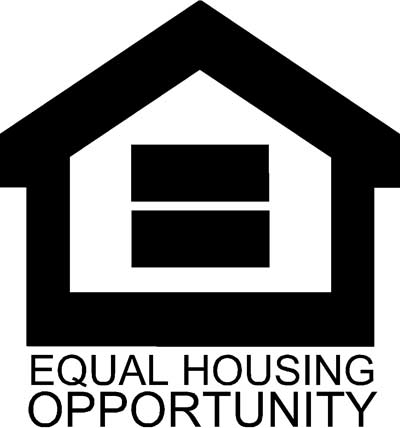Tips for LGBTQ+ Couples Looking for a Home
Owning real estate is traditionally a bridge to wealth accumulation, but until recent years, couples in the LGBTQ+ community have had little experience in home ownership.
What does experience have to do with it? As we saw in the mortgage crisis of 2008, people can fall prey to predatory lending practices if they have not done their homework and are ready to enter the home buying process with eyes wide open.
That’s why learning a few tips, knowing your rights, and working with dedicated professionals who have your best interests in mind is of special importance when considering an investment as critical as home ownership.
Are You Financially Ready?
Investing in a home takes more than a willingness to commit to mortgage payments. A home may take 15 to 30 years to pay off, and during that time you will run into both planned an unexpected expenses.
Home repairs, new vehicles, rising real estate taxes, medical bills, remodeling. During all this time your income may fluctuate, family members may need financial help, and more.
It pays to approach home buying smartly. Every dollar you save is one you may need for an emergency, or to ensure that your dream of owning a home is sustained through good times and bad.
Know your credit score. Credit scores affect interest rates and consumers with good scores get lower rates on mortgages. You can check out this article on Investopia on How to Improve Your Credit Score.
Pick the right location. Whether you choose an urban setting or a rural community, investigate real estate taxes, school taxes, personal taxes, and recent home sales to see if you’re paying a premium to enter a hot market, or if something that meets all your needs awaits you in a welcoming community not far away,
Grow your down payment. Another way to lower interest is by working to accumulate a significant down payment. A good rule of thumb is a down payment of just under 20% of your total costs in buying the home. Work with your real estate professional to understand how mortgage insurance figures into total costs and how a larger down payment gives you more equity right off the bat.
Learn more at Nerdwallet: What Down Payment is Required?
Interest Rate and Loan Type. Shorter term loans come with lower interest rates, but higher monthly costs. The average period for repayment is 25 years. A short term is usually 10 to 15 years. Recently, there has been growth in mortgage terms of 30 and more years.
Take care in acquiring adjustable rate loans, which may give you a lower monthly cost now, at the expense of a possibly significant increase later on. There are also different types of loans to choose from, including conventional, FHA, USDA, and VA loans.
Know Your Rights
Legally married LGBTQ+ couples can purchase property together in “tenancy by the entirety.” That’s a legal term meaning each owner holds an indivisible interest with the right of survivorship, a right traditionally granted to husbands and wives.
This is an important distinction from “joint tenants with rights or survivorship,” as the former title offers important protections against creditors trying to collect debts from the deceased party.
Hopefully, you won’t face discrimination, but if you do you should know that federal fair housing law prohibits housing discrimination based on race, color, religion, national origin, sex, familial status, and disability. The Fair Housing Act prohibits discrimination against LGBTQ+ persons because of their gender identity or any other sex-based discrimination.
According to Forbes Advisor, “About 29% of 1,538 LGBTQ+ members in the U.S. reported they had experienced discrimination during the homebuying process or suspected they were victims of it, according to a recent survey by Realtor.com in partnership with the LGBTQ+ Real Estate Alliance.”
If you feel you have been a victim of discrimination, go to the website of the U.S. Department of Housing and Urban Development and file a complaint online.
Looking for Acceptance, Stability, Community
Hesitancy among potential LGBTQ+ homebuyers tends to revolve around acceptance rather than purely worries over financial commitment. Decades of intolerance, continuing persecution from some area of society, and unequal recognition under the law have all had their toll.
At the same time, affordable housing is often in less urban areas, meaning suburbs with less cultural, ethnic, and gender diversity where the LGBTQ+ population may be under represented and more easily discriminated against.
On his first day in office, President Joe Biden signed an Executive Order on “Preventing and Combating Discrimination based on Gender Identity or Sexual Orientation.” This sends a strong signal that the administration is against discrimination of the LGBTQ+ community. What is necessary to pass these protections into law is for the Senate to pass the Equality Act (already approved by Congress and currently under consideration in the Senate).
Need More Help?
The LGBTQ+ Real Estate Alliance is dedicated to helping members of the LGBTQ+ community with all their housing needs. We are an all-inclusive and all-embracing organization which enhances the lives of the LGBTQ+ community, in part by provide consumers the necessary resources to assist in all facets of the homeownership experience.
We invite you to you download our First Time Homebuyer Guide, developed specifically for you!
If you are looking for engaged professionals who believe in the mission of the LGBTQ+ Real Estate Alliance, then visit out National Chapter Program page.




